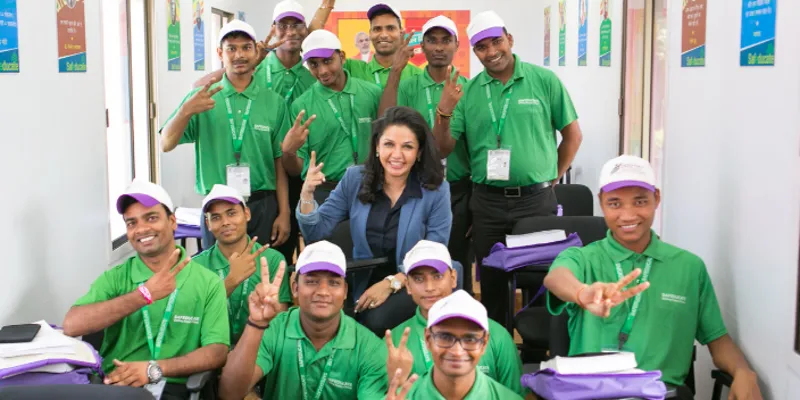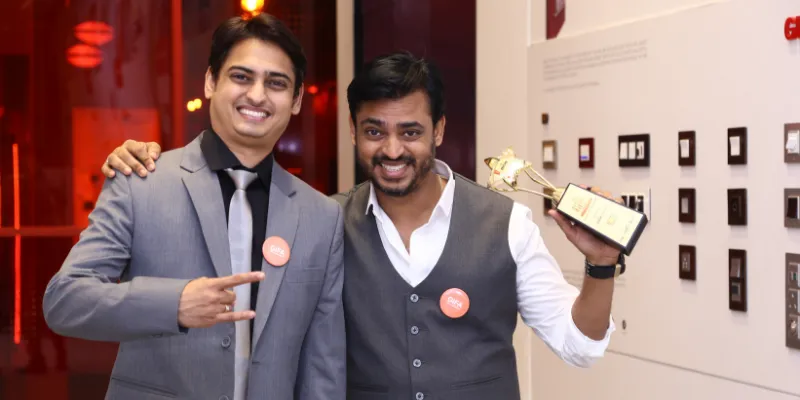Indian MSMEs are adopting technological innovations, letting go of traditional industrial approaches
From small towns to metro cities, many MSME entrepreneurs are harnessing tech to innovate their products and services, giving a boost to their business and a fillip to the once-stagnant MSME sector.

In today’s business ecosystem, a majority of global entrepreneurs talk about adopting deep tech like artificial intelligence (AI), machine learning (ML), big data, internet-of-things, etc to become more efficient, gain more user trust, and stand apart from the competition. But Micro, Small, and Medium Enterprises (MSMEs), on the other hand, are generally viewed as slow to adoption of technology, preferring to do business in the traditional and conventional method.
According to a report by ADB Institute, India is ranked very low in the global innovation index (81 out of 141 countries), and this reflects by the way Indian SMEs operate as well.
But various studies also reveal that MSMEs in India are growing and if provided financial support, they can give a breakthrough to India’s GDP.
At SMBStory, we travel across India to cover MSMEs, and we have unearthed several stories of small business owners adopting technology in their operations.
From small towns to metro cities, many MSME entrepreneurs are harnessing tech to innovate their products and services, thereby giving a boost to their business and a fillip to the once stagnant MSME sector. Let’s take a look at some MSMEs embracing technology in their operations.
Healthcare

Founder, Niraj Kumar Nir (left) along with his team at Aishwarya Healthcare's IVF manufacturing unit
YourStory’s Brands of India winner Neeraj Kumar Nir’s Aishwarya Healthcare is a good example of an MSME using technology.
With the annual turnover of Rs 310 crore, Aishwarya Healthcare, based in Baddi, Himachal Pradesh, is among the top three IVF manufacturers in the country. Their IVF is used by prestigious institutions, including the armed forces, and medical corporations of various States like Jammu & Kashmir, Himachal Pradesh, Haryana, Chhattisgarh, West Bengal, Karnataka, and Maharashtra. Various government hospitals and Command hospital in Leh are their biggest purchasers.
To manufacture IVF, they use latest Blow Fill Seal (BFS) technology where a bottle is formed, filled, and sealed in a continuous process without any human intervention. The same technology is being used by Nirma’s Aculife and Nirlife, among the top two IVF manufacturers in India.
Being at par with the technology advancements and dominating the healthcare sector, Aishwarya Healthcare exports around 15-20 million units to more than 30 countries, including ones in Africa, Europe, and Asia.
Education
In the past decade, major Indian companies have rapidly adapted to the global shift towards technology. And MSMEs now are not too far behind, either.
Taking an initiative to transform the traditional mode of training by using AI operated vans, Delhi-based Safeducate works towards developing the right competencies to enable learners to achieve a sustainable livelihood by making them job-ready, or kindling in them a spirit to pursue entrepreneurship.
Founded by Divya Jain, Safeducate launched Car-O-Job, which transforms vans into virtual reality (VR)-led experiential centres for students. Through VR, the van gives students glimpses of different jobs in retail, manufacturing, warehousing, etc.

Divya Jain (centre), founder, Safeducate, with her team
In addition to removing any anxiety that the students face regarding unknown job profiles or work cultures, the Car-O-Job portal also facilitates video interviews with prospective employers, and the selected candidates receive offer letters on the spot. The van, since its inception, has covered five different locations, and reached nearly five lakh youths.
Electronics
Even in the electronics segment, the technological adoption has increased manifold. In the past few decades, we have seen innovations happening with a variety of electronic products available in the market. The manufacturers are working rigorously on R&D to deliver unique products. Take Goldmedal Electricals, for example.
Goldmedal Electricals is a family-run business started as a reselling business in 1979. However, in 1995, it hit the manufacturing segment by producing urea switches. As time passed by, it altered the design and in 2005, when second-generation entrepreneur Kishan Jain took over the reins, he brought a transformation to the products by bringing in plastic switches. And, since then, there has been no looking back.
In 2001, the company began manufacturing polycarbonate switches and launched a series of 3-Magic with locking system switches and many others in the following years.
Almost three decades down the lane, the company vies with the likes of Legrand and Panasonic, and has recorded Rs 1,400 Crore turnover in 2019.

Bishan Jain (Director) and Kishan Jain (Director), Goldmedal Electricals
Kishan feels that technological innovation is the crux to stay afloat in the electronics industry. Thus, Goldmedal Electricals is running on its own ERP system. The company has its own application where all the dealers can log on and view their transactions with the company. From catalogues, sales, payments to agent schedules, all information is available to the dealers at the tap of a button.
It is now planning to launch an application where it can connect dealers and approximately 40,000 electricians in the database to benefit the segment.
It is also trying to play around with technology and innovate modular switches where human intervention would be minimal.
What needs to be done
The food and beverages industry is also not behind as we can see variety of technological transformations in processing of food. From rearing cows for milk to extraction of honey, processes have been made more efficient and less time consuming, thanks to technology.
Though MSMEs may have been slow to technological adoption, they are now actively embracing technology to overhaul old business practices.
According to a YES Bank survey, most of the MSMEs are reluctant to adopt technology due to their lack of understanding while choosing the right technology solution, and low impact on overall profitability. This is followed by the lack of skilled manpower to operate technology, lack of trust in technology, and the high cost of equipment.
The need of the hour is to create more awareness among MSME entrepreneurs for technology adoption and the government, trade bodies, and associations helping them understand insights on how transforming from a traditional business to digitally active space will be a boon to their business and the sector at large. Further, favourable funding and policies and skilled R&D workforce will help MSMEs to attain a competitive level in the global market.





